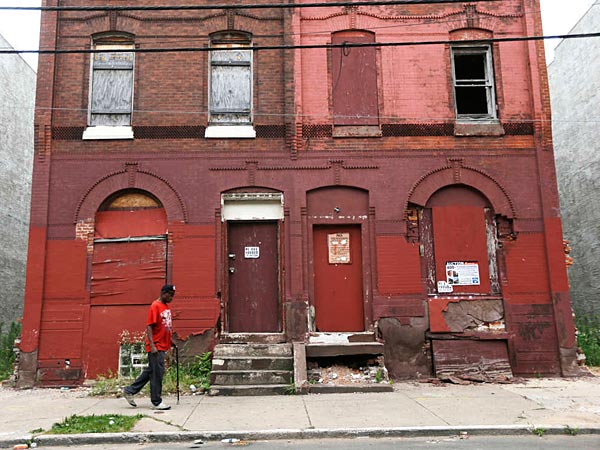Mayor Nutter signed the Philadelphia Land Bank into law
Monday and predicted that it could start selling the city's vast inventory of
vacant and tax-delinquent properties by year's end.
"Making it easier to find productive new uses for these
properties is a critical step in revitalizing communities, attracting new
residents and businesses, building household wealth, and certainly
strengthening the city's finances," Nutter said.
Though the mood was celebratory, even between City Council
President Darrell L. Clarke and the bill's chief sponsor, Councilwoman Maria
Quinones Sánchez, who often clashed over the bill's language, all parties said
much work lay ahead.
The legislation creates a new governing body to manage the
city's stock of vacant land, acquire tax-delinquent properties, and sell them
to responsible buyers. But the creation is only the start.
Before the bank can begin selling about 9,500 city-owned and
17,000 tax-delinquent properties scattered citywide, a few things need to
happen:
The land bank must be incorporated by the state.
Money must be allocated from the city's budget for the
bank's operations.
A strategic plan must be developed for the land bank and
then approved by Council.
City-owned properties need to be transferred to the new body
by Council.
"We anticipate the land bank should be fully
operational by end of this calendar year," Nutter said.
The bank's temporary 11-member board will likely meet for
the first time in the next few weeks, officials said. Key decisions will
follow, such as who will serve on the permanent board.
"Set forth a plan that allows for affordability,
accessibility and redevelopment in every neighborhood," Quinones Sánchez
said after Monday's news conference. "Center City has been the focus and
development around Center City. . . . Neighborhoods are now where the focus of
the city needs to be at."
Though Nutter would not say how much money he would budget
for the land bank, Quinones Sánchez said $3 million to $5 million would be
needed to get things running.
Initially, that will include no staff hiring. The money will
pay consultants and other tools needed to quickly move properties to the bank,
Quinones Sánchez said.
The bank will be a subsidiary of Philadelphia Housing
Development Corp. and use some staff there and at other city agencies now
handling city-owned land, including the Redevelopment Authority and Department of
Public Property.
Land bank advocates such as Rick Sauer, executive director
of the Philadelphia Association of Community Development Corporations, said
they hope that once the bank is in full swing, it will reduce the time between
an expression of interest in a vacant property and a sale.
"Right now the city is transferring 100 to 200
properties per year, and we think that can be translated in the
thousands," Sauer said. He says there is enough interest from private and
nonprofit developers to put vacant lots to uses that could include townhouses
or community gardens.
"The way the market is trending in Philadelphia. . . .
it's going to be a game-changer," Sauer said.
The bill Nutter signed Monday grew out of years of meetings
and negotiations among the administration, Council, community groups and
others. Clarke likened the process to "making sausage . . . kind of
ugly."
Supporters had wanted a more streamlined process for land
decisions than the one eventually settled on by Council and voted on at its
final 2013 meeting. Quinones Sánchez said the legislation was "not
perfect," but that it would still work.
She said at the signing ceremony, "I believe this will
be the game-changer we need in our neighborhoods."
Source: Philly.com

No comments:
Post a Comment